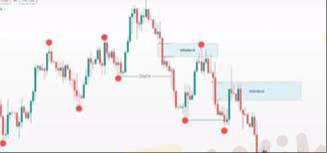
2025-02-13 15:00
IndustryGlobal trade imbalances and forex market reactions
Global trade imbalances occur when a country's imports exceed its exports (trade deficit) or vice versa (trade surplus). These imbalances can significantly impact forex markets. Here's a breakdown:
Causes of Global Trade Imbalances
1. *Differences in Economic Growth*: Countries with stronger economies tend to import more, leading to trade deficits.
2. *Exchange Rates*: Misaligned exchange rates can make exports more expensive, leading to trade deficits.
3. *Trade Policies*: Tariffs, quotas, and other trade restrictions can disrupt global trade flows.
4. *Investment and Savings*: Countries with low savings rates may rely on foreign capital, leading to trade deficits.
Effects on Forex Markets
1. *Exchange Rate Adjustments*: Trade imbalances can lead to changes in exchange rates, as countries with trade surpluses tend to see their currencies appreciate.
2. *Capital Flows*: Trade imbalances can influence capital flows, as investors seek to exploit interest rate differentials and exchange rate fluctuations.
3. *Market Volatility*: Large trade imbalances can contribute to market volatility, as traders and investors react to changes in global trade flows.
4. *Currency Intervention*: Central banks may intervene in forex markets to influence exchange rates and address trade imbalances.
Examples of Global Trade Imbalances
1. *US-China Trade Deficit*: The US has a significant trade deficit with China, driven by large imports of Chinese goods.
2. *Germany's Trade Surplus*: Germany's strong economy and competitive exports have led to a large trade surplus.
3. *Japan's Trade Deficit*: Japan's energy imports and aging population have contributed to a trade deficit.
Key Takeaways
1. Global trade imbalances can significantly impact forex markets.
2. Understanding the causes and effects of trade imbalances is crucial for forex traders and investors.
3. Trade imbalances can lead to changes in exchange rates, capital flows, and market volatility.
By grasping the relationship between global trade imbalances and forex market reactions, you'll be better equipped to navigate the complexities of international trade and finance.
Like 0

Abisco7753
Broker
Hot content
Industry
Event-A comment a day,Keep rewards worthy up to$27
Industry
Nigeria Event Giveaway-Win₦5000 Mobilephone Credit
Industry
Nigeria Event Giveaway-Win ₦2500 MobilePhoneCredit
Industry
South Africa Event-Come&Win 240ZAR Phone Credit
Industry
Nigeria Event-Discuss Forex&Win2500NGN PhoneCredit
Industry
[Nigeria Event]Discuss&win 2500 Naira Phone Credit
Forum category

Platform

Exhibition

Agent

Recruitment

EA

Industry

Market

Index
Global trade imbalances and forex market reactions
 Hong Kong | 2025-02-13 15:00
Hong Kong | 2025-02-13 15:00Global trade imbalances occur when a country's imports exceed its exports (trade deficit) or vice versa (trade surplus). These imbalances can significantly impact forex markets. Here's a breakdown:
Causes of Global Trade Imbalances
1. *Differences in Economic Growth*: Countries with stronger economies tend to import more, leading to trade deficits.
2. *Exchange Rates*: Misaligned exchange rates can make exports more expensive, leading to trade deficits.
3. *Trade Policies*: Tariffs, quotas, and other trade restrictions can disrupt global trade flows.
4. *Investment and Savings*: Countries with low savings rates may rely on foreign capital, leading to trade deficits.
Effects on Forex Markets
1. *Exchange Rate Adjustments*: Trade imbalances can lead to changes in exchange rates, as countries with trade surpluses tend to see their currencies appreciate.
2. *Capital Flows*: Trade imbalances can influence capital flows, as investors seek to exploit interest rate differentials and exchange rate fluctuations.
3. *Market Volatility*: Large trade imbalances can contribute to market volatility, as traders and investors react to changes in global trade flows.
4. *Currency Intervention*: Central banks may intervene in forex markets to influence exchange rates and address trade imbalances.
Examples of Global Trade Imbalances
1. *US-China Trade Deficit*: The US has a significant trade deficit with China, driven by large imports of Chinese goods.
2. *Germany's Trade Surplus*: Germany's strong economy and competitive exports have led to a large trade surplus.
3. *Japan's Trade Deficit*: Japan's energy imports and aging population have contributed to a trade deficit.
Key Takeaways
1. Global trade imbalances can significantly impact forex markets.
2. Understanding the causes and effects of trade imbalances is crucial for forex traders and investors.
3. Trade imbalances can lead to changes in exchange rates, capital flows, and market volatility.
By grasping the relationship between global trade imbalances and forex market reactions, you'll be better equipped to navigate the complexities of international trade and finance.
Like 0
I want to comment, too
Submit
0Comments

There is no comment yet. Make the first one.

Submit
There is no comment yet. Make the first one.